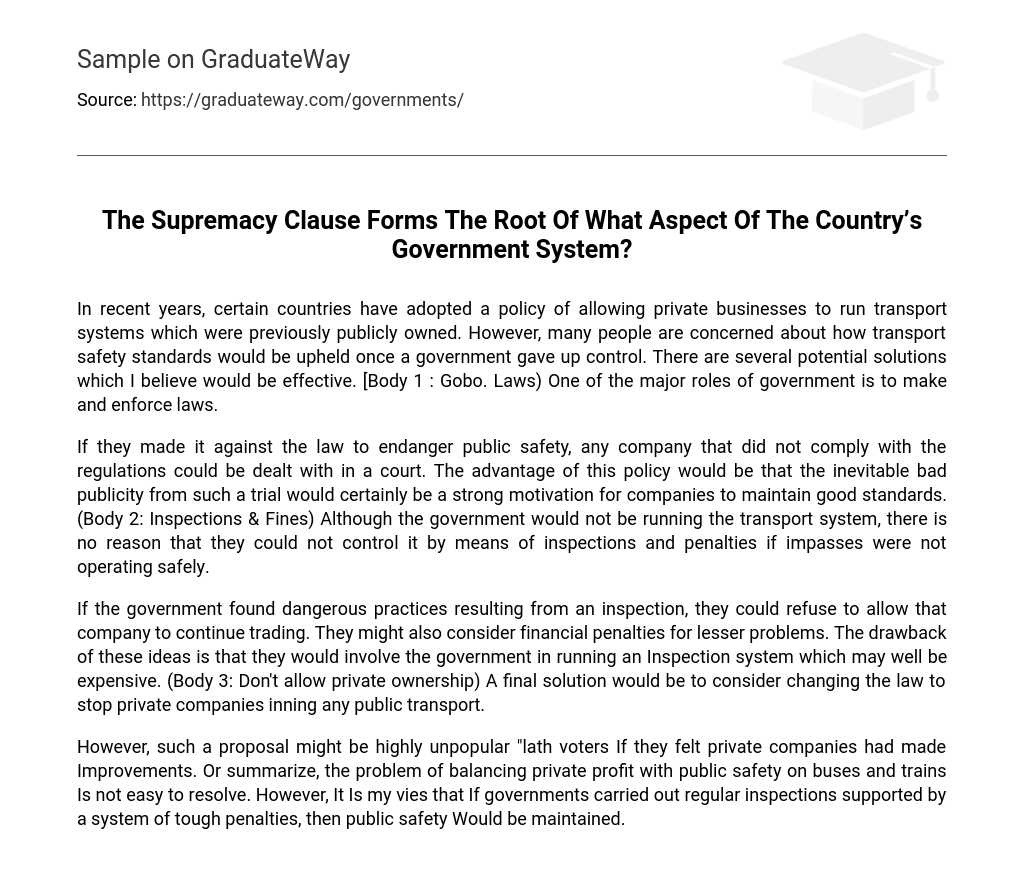Recently, some countries have opted to privatize their transportation systems, which were previously under public ownership. This shift has raised concerns about the maintenance of safety standards once government control is relinquished. Nonetheless, I propose several potential solutions that I believe would effectively address this issue. [Body 1: Gobo. Laws) The government plays a crucial role in creating and enforcing laws.
If endangering public safety became illegal, non-compliant companies could face legal consequences. This policy would be advantageous because the negative publicity resulting from a trial would strongly incentivize companies to uphold high standards. (Body 2: Inspections & Fines) While the government would not be directly managing the transportation system, they could still regulate it through inspections and penalties for unsafe operations.
If the government discovers hazardous practices during an inspection, they have the authority to prohibit the company from continuing its operations. There is also the possibility of imposing financial penalties for less severe issues. However, one drawback of these measures is that they would require the government to manage an expensive inspection system. (Body 3: Do not permit private ownership) Another potential solution would be to consider enacting legislation that prohibits private companies from running any form of public transportation.
However, the proposal to balance private profit and public safety on buses and trains may be disliked by voters if they believe that private companies have made improvements. Overall, resolving the issue is challenging. In my opinion, regular inspections conducted by governments accompanied by strict penalties would ensure the maintenance of public safety.





